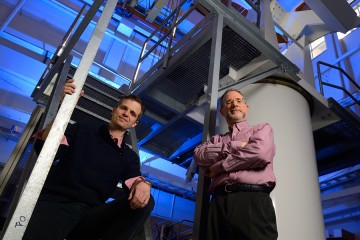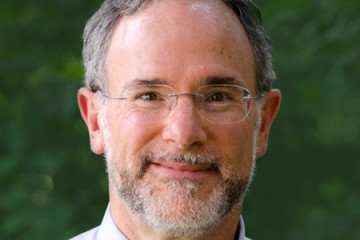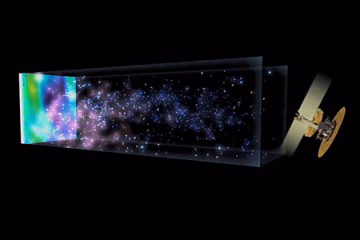Charles L. Bennett, the Alumni Centennial Professor of Physics and Astronomy and Gilman Scholar in the Krieger School of Arts and Sciences at Johns Hopkins University, will receive the 2015 "Caterina Tomassoni and Felice Pietro Chisesi Prize" in June at the University of Roma "La Sapienz" in Italy.
The Tomassoni Chisesi Prize committee awarded Bennett the Prize for "leadership in two experiments on the Cosmic Microwave Background (CMB) that literally changed our view of the universe: Cosmic Background Explorer (COBE), leading to the discovery of primordial spatial fluctuations in the CMB, and Wilkinson Microwave Anisotropy Probe (WMAP), leading to precise measurements of the cosmological parameters and establishing the de facto Standard Cosmological Model."
The Prize, in honor of the memory of Caterina Tomassoni and Felice Pietro Chisesi, recognizes and encourages outstanding achievements in physics. The award consists of 50,000 Euros, an allowance for travel to the award ceremony, and a special "Schola Physica Romana" medal.
"It is hard to overstate the degree to which the cosmic microwave background satellites have clarified our understanding of the universe," said Nobel-Prize recipient and Johns Hopkins professor Adam Riess, "the recognition of this work is well deserved."
Bennett's experimental research on the CMB has endured for 30 years. The CMB is the afterglow from the hot infant universe, which has been traveling across the universe for 13.8 billion years. Bennett's leadership and participation in the creation of experimental instruments and telescopes has helped to better understand the origin and evolution of the universe through observational studies of the CMB. His work led to what is called the Standard Cosmological Model. With Tobias Marriage, Johns Hopkins assistant professor of physics and astronomy, Bennett is currently building the Cosmology Large Angular Scale Surveyor (CLASS), a telescope array under construction in Chile designed to study the first trillionth of a trillionth of a second of the history of the Universe.
"I have had the unusual privilege of working with two fantastic space mission science teams during my career. I learned so much from these superb scientists. It was a pleasure to work with them. I am grateful to them and to the Prize selection committee," said Bennett.
Bennett is the recipient of several notable awards and honors throughout his career. Those honors include the 2013 Jansky Prize, the 2012 Gruber Cosmology Prize, the 2010 Shaw Prize in Astronomy, the 2009 Comstock Prize in Physics, the 2006 Harvey Prize, and the 2005 Draper medal. He has twice received the NASA Exceptional Scientific Achievement Medal and also received the NASA Outstanding Leadership Medal for WMAP.
Posted in Science+Technology
Tagged physics, charles bennett, astrophysics, space











